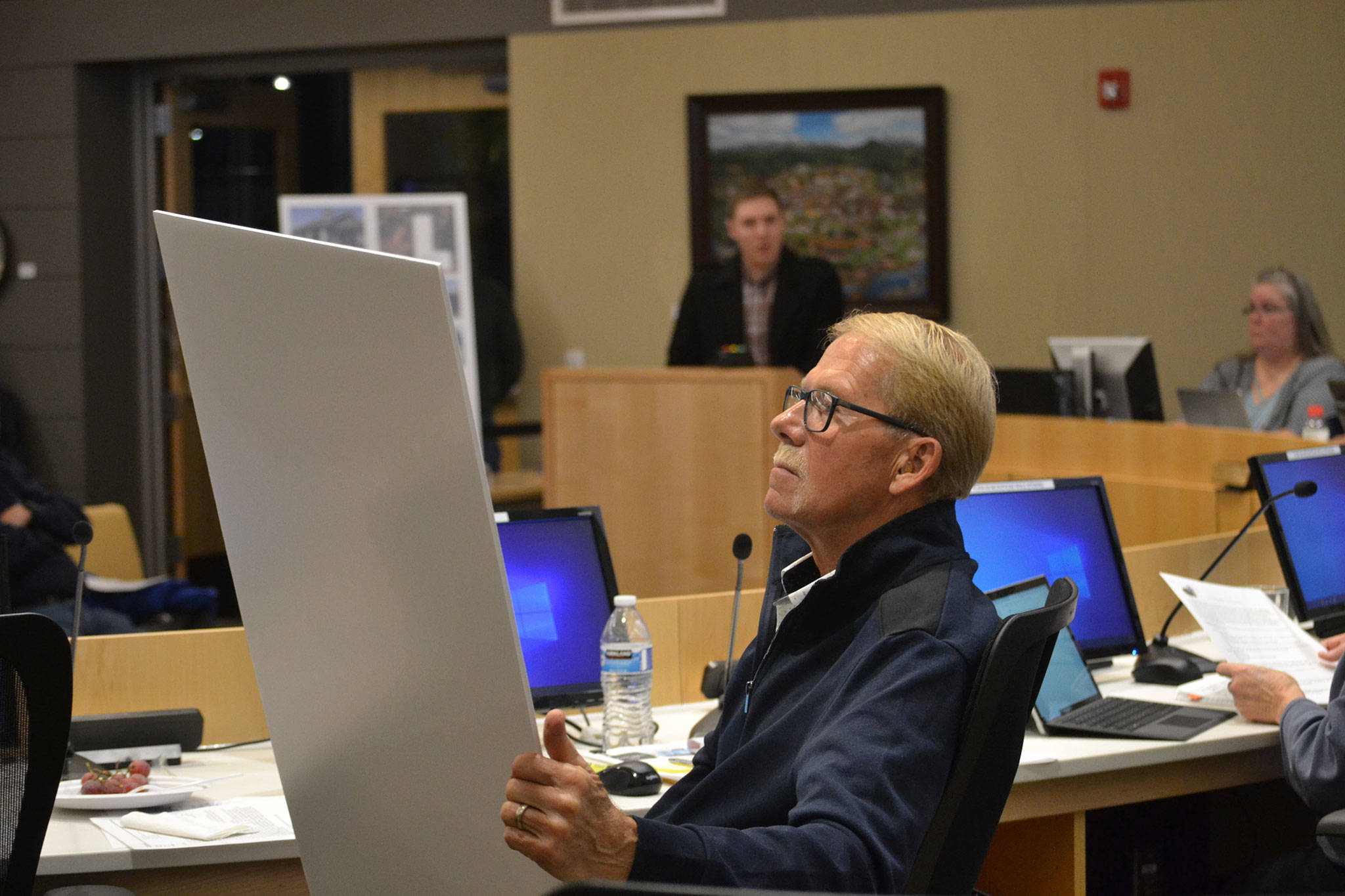SEQUIM — A former Sequim dairy farm won’t become a 200-plus manufactured home park in the foreseeable future.
Sequim City Council members split 3-3 Monday on a preliminary Binding Site Plan from Poulsbo’s JWJ Group LLC to build Lavender Meadows, a 217-site manufactured home park, in three phases on 38.3 acres at the intersection of North Sequim Avenue and Port Williams Road.
One abstained
Council members Ted Miller, Brandon Janisse and William Armacost voted against the proposal while Jennifer States abstained because she missed the previous meeting.
For Miller, the issues were allowing private streets rather than public streets and the lack of control over leasing prices.
He said a 2007 ordinance (17.32.090) in the Sequim Municipal Code overrides a 1997 manufactured home code that private streets are allowed only in gated communities, whereas the 1997 code allows private streets in manufactured home parks.
“I don’t believe we can approve this until it’s settled; once it’s settled, then it’s too late,” Miller said.
“The code clearly states 10 years after adopted that all roads had to be public, so we’re basically ignoring it or looking for a loophole to get around it, and I don’t believe it’s legitimate to do so.”
City Attorney Kristina Nelson-Gross said city staff looked at the conflict early on and that the more specific standards in the manufactured home code ordinance are what they applied.
She said city staff marked the manufactured homes code portion for revision for clarity in 2020.
“Whether we like it or not, those 1997 manufactured home standards are in place,” Nelson-Gross said.
Miller said former city attorney Craig Ritchie said that following the 2007 code being approved, there wouldn’t be another private road built in the city.
Both city staff and the planning commission recommended the project move forward.
Developer’s response
John Wesley Johnson, principal with JWJ Group, said he’s “very disappointed” in the council’s decision, particularly after working with city staff and neighbors and “spending a lot of money adjusting the project.”
“It feels like we were relying on the good faith of the City Council to recognize the quality of the project we’re bringing and the work we’ve done so it fits with the community,” he said.
“Part of the quasi-judicial decision making is supposed to involve fairness. It feels that the decision failed to deliver a fair result.”
Johnson said Tuesday he’s begun exploring his legal options.
“We’re not going to back away from the project,” he said.
“We’re going to move forward and get our grading permits. We’ll continue to work with the city.”
Nelson-Gross said after Monday’s meeting that city staff will explore paths forward and reach out to Johnson.
As for the roads issue, Johnson said he followed city staff’s advice and that it’s not standard or reasonable to have public roads in manufactured home parks.
“They were looking for any reason to turn it down,” he said.
Johnson said it sets a bad precedent for long-term residents like the Booth family, who owns the property, to be treated this way.
Tom Booth, one of three family partners to own the farm, said the property was a dairy farm from 1946 until about 15 years ago when it went on the real estate market.
He said nearby development made it unusable as a farm.
Leasing
Representatives for JWJ Group said Nov. 25 that the proposed homes would have ranged from $160,000 to $200,000 for approximately 1,700-square-feet homes with leased lots costing $400 to $600 per month to rent.
Each home would come from a factory new, meet federal standards, be energy efficient and feature 30-year roofs. Homeowners would choose the design specifics.
Part of the lease would pay for a part-time maintenance positions for upkeep on common areas, park areas and a clubhouse and fire pits.
Johnson also included about 2,600 feet of frontage improvements on Sequim Avenue and Port Williams Road that he said would cost about $1.5 million.
Miller also shared concern over rent costs.
He said JWJ Group seemed reasonable, but that the 217 homeowners would be at the mercy of the landlord with no say in rent costs.
“With the whole issue of manufactured homes on leased land, you really have no leverage at all,” Miller said.
He said their likely only option would be to sell because the cost to move would be too much.
Armacost said people purchase manufactured homes for their low cost, but he believes the rent is going to go up.
“The individuals who choose to make that type of investment aren’t able to make investment on their own land,” he said.
Armacost said a friend of his recently moved a modular building and installed utilities at a cost of about $35,000 and that people who buy manufactured homes wouldn’t have the funds to do that too if rent became too costly.
Nelson-Gross said rent control issues could be policy decisions looked at later, but the council had to look at the application before them.
A decision on the project was postponed from Nov. 25 to Dec. 9 so council members could have more time to consider it. They also met in executive session for 15 minutes on Dec. 9 to discuss the private versus public roads issues.
For more information about the proposed project, visit www.sequimwa.gov or call 360-683-4908.
________
Matthew Nash is a reporter with the Olympic Peninsula News Group, which is composed of Sound Publishing newspapers Peninsula Daily News, Sequim Gazette and Forks Forum. Reach him at mnash@sequimgazette.com.

